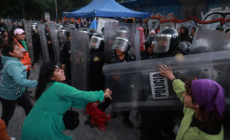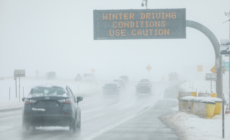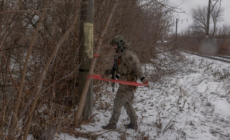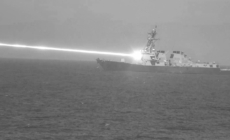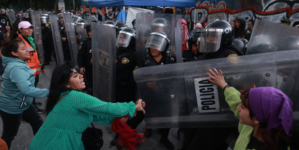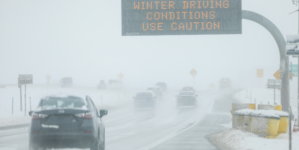-
MAGA Mocks Democrat Protests Outside USAID - 19 mins ago
-
Opinion: Will children’s constitutional right to a public education prevail? - 20 mins ago
-
Inside Musk’s Government Takeover, and Frantic Tariff Negotiations - 39 mins ago
-
Trump’s Gag Rule Is a Small Part of Society’s Pronatalist Conspiracy | Opinion - 54 mins ago
-
Jeffries Works With N.Y. Democrats to Weaken G.O.P. Control of the House - about 1 hour ago
-
Winter Weather Warnings for 10 States As Heavy Snow Hits - about 1 hour ago
-
Russian Soldier Froze to Death After Rogue Commander Tied Him to Tree—Report - 2 hours ago
-
Lawsuit Accuses University of California of Allowing Race to Factor in Admissions - 2 hours ago
-
US Warship Fires Laser Weapon in Stunning Photo - 3 hours ago
-
A Daring Rescue Under a Subway Train Leads to an Emotional Reunion - 3 hours ago
DNA Match Yields Murder Arrest in 2005 Utah Cold Case
The case had stumped investigators for almost two decades: Jason Royter, a father of two, had been found stabbed to death in his Salt Lake City-area home.
There were no signs of forced entry and no apparent motive. Little for detectives and Mr. Royter’s relatives, including his now-adult children, to go on in the unsolved homicide.
But a DNA hit finally provided a breakthrough in the cold case, leading to the arrest last week of Mark Munoz, 53, a homeless man, in Mr. Royter’s killing, the authorities said during a news conference on Friday.
At the briefing held by the Salt Lake County Sheriff’s Office, two of Mr. Royter’s sisters and his son joined investigators for the announcement that Mr. Munoz had been charged.
“I know this could have stalled,” Niki Price, one of Mr. Royter’s sisters, said. “They would not stop until it was done.”
Investigators said that DNA collected from Mr. Royter’s home in Magna, Utah, matched a sample that had been collected from Mr. Munoz, who was included in a national forensic database used by law enforcement agencies when he was arrested in a separate matter in another state.
They declined to say which state the other case was from or what it involved, citing the ongoing investigation into Mr. Royter’s murder.
“These cases go cold,” Rosie Rivera, the Salt Lake County Sheriff, said at the news conference. “Some of them go 10 years, 20 years, 50 years.”
It was not immediately clear whether Mr. Munoz, who was taken into custody on Thursday, had a lawyer. Requests for comment were left on Monday with the Salt Lake Legal Defender Association and the Salt Lake County district attorney’s office seeking that information.
Ben Pender, the detective who took over the cold case investigation, said on Friday that Mr. Munoz had been difficult to track down because of his transient background.
“He really doesn’t have a stable residence,” he said.
Sheriff Rivera said that investigators still had not established a motive in the case and that Mr. Munoz had not been cooperating with investigators.
“He knows what happened,” she said. “We don’t.”
The sheriff credited the homicide investigators who initially responded to the crime scene with preserving evidence, saying that advances in forensic science over the years had helped solve cases like Mr. Royter’s murder.
Stephani Perschon, another one of Mr. Royter’s sisters, said that Mr. Munoz’s arrest had helped to ease a heavy burden on her family.
“I just want to say how much of a relief this is,” she said. “It has been a long 20 years.”





